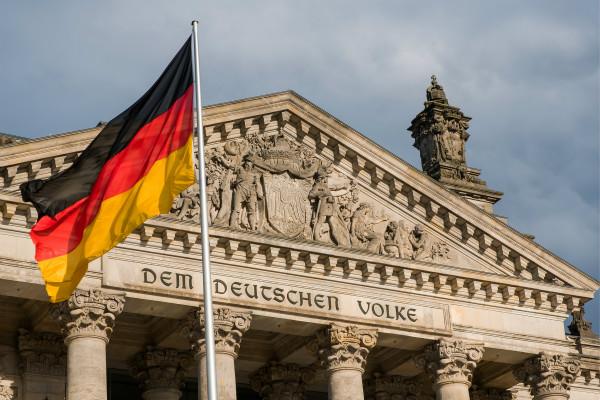
In these turbulent times, the players on the European political scene seem to be looking for a solid pivot to support them through the turmoil. Germany, once Mired in World War II and rapidly emerging as a world economic power after the war, has long been seen as an anchor of political stability in Europe. But is Germany really up to that role today?
Let's start with a bit of history. In the process of reconstruction after World War II, Germany not only achieved economic take-off, but also showed amazing self-reflection and reform ability in politics. By joining NATO and the European Union, Germany has actively participated in the European integration process and become one of the core forces of European economy and politics. German Chancellor Angela Merkel's "German-style steadiness" has become a symbol of political stability in Europe. The concept of "European values" and "multilateralism" advocated by her has won Germany respect and trust in Europe and around the world.
However, times have changed, and today both Germany and Europe are facing unprecedented challenges. The fragmentation of Germany's domestic political ecosystem, the rise of populism and the pressures of an economic slowdown are eroding the country's position as an anchor of political stability in Europe. Not to mention, a series of refugee crises, terrorist attacks and major events such as Brexit in Europe in recent years have changed the political landscape of Europe beyond recognition.
In this context, can Germany continue to play the role of stabilizer? I'm afraid there is a big question mark. First of all, the fragmentation of Germany's domestic political ecology has made the German government feel powerless in the face of major decisions. The divisions and fights between the parties have not only consumed the government, but also made Germany's voice on the international stage less firm and powerful. This internal conflict not only weakens Germany's influence in Europe, but also makes other European countries wonder whether Germany can still support the European integration process as firmly as in the past.
Second, the rise of populism is a major threat to Germany's political stability. On issues such as immigration, the economy, and social welfare, populist parties constantly whip up popular sentiment and try to win votes with xenophobic and polarizing rhetoric. This extreme political atmosphere has not only intensified the division and conflict in German society, but also made Germany more cautious and conservative in dealing with European and international affairs. This conservative attitude not only limits Germany's leadership role in European politics, but also frustrates and disappoints other European countries.
Turn to the economy. The German economy, while still strong, has slowed significantly. Faced with the challenges of globalization and digitalization, Germany's traditional industries are undergoing profound transformation and change. This transition has not only brought economic uncertainty, but also made Germany appear more cautious and conservative in its response to European and international economic problems. This conservative attitude not only affects Germany's enthusiasm in the process of European economic integration, but also makes other European countries begin to question whether Germany can still provide economic aid and support as generous as in the past.
Of course, we cannot ignore the impact of external factors on political stability in Germany and Europe. Brexit is undoubtedly one of the biggest shocks to European political stability in recent years. As an important member of Europe, Britain's Brexit has not only made the EU lose an important ally and partner, but also caused profound changes in the European political landscape. This change not only intensifies the division and contradictions within the EU, but also makes Germany face more complicated situations and greater challenges when dealing with European affairs.
In addition, security issues such as the refugee crisis and terrorist attacks have seriously threatened Europe's political stability. These incidents have not only caused panic and unease among the European people, but also put European governments in a difficult position to deal with the problem of refugees and migrants. Germany, as one of the most important countries in Europe, has been under great pressure and blame during the refugee crisis. This pressure has not only made Germany appear more cautious and conservative in its handling of the refugee problem, but also made other European countries begin to wonder whether Germany can still promote the European integration process as actively as in the past.
To sum up, Germany's position as an anchor of political stability in Europe has been seriously challenged and questioned. The fragmentation of Germany's domestic political ecology, the rise of populism, the pressure of economic slowdown, and the impact of external factors have made Germany more cautious and conservative in dealing with European and international affairs. This conservative attitude not only limits Germany's leadership role in European politics, but also leaves other European countries looking for new stabilizers and partners.

According to the foreign media The Verge, recently, Tesla CEO Elon Musk's goals in the field of fully autonomous driving (FSD) have once again fluctuated.
According to the foreign media The Verge, recently, Tesla C…
In early 2026, Greenland along the North Atlantic coast bec…
Recently, the century-old American high-end department stor…
Recently, the U.S. stock market has appeared turbulent amid…
Recently, the largest private equity firm in South Korea, M…
In early 2026, after the Trump administration detained Vene…